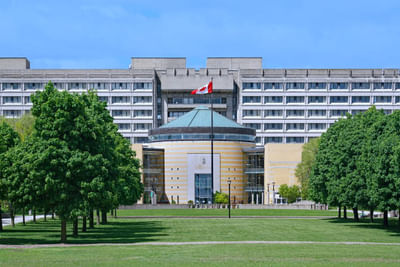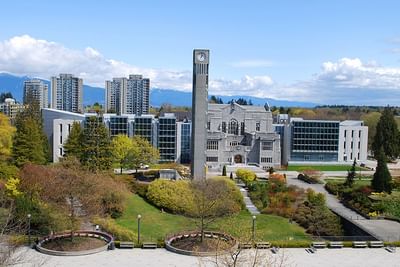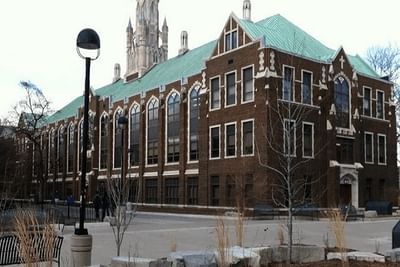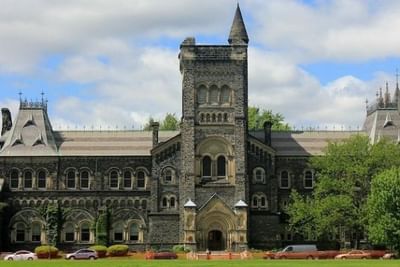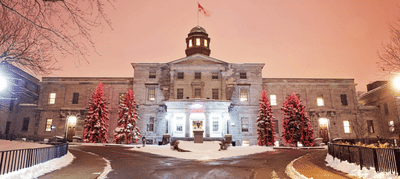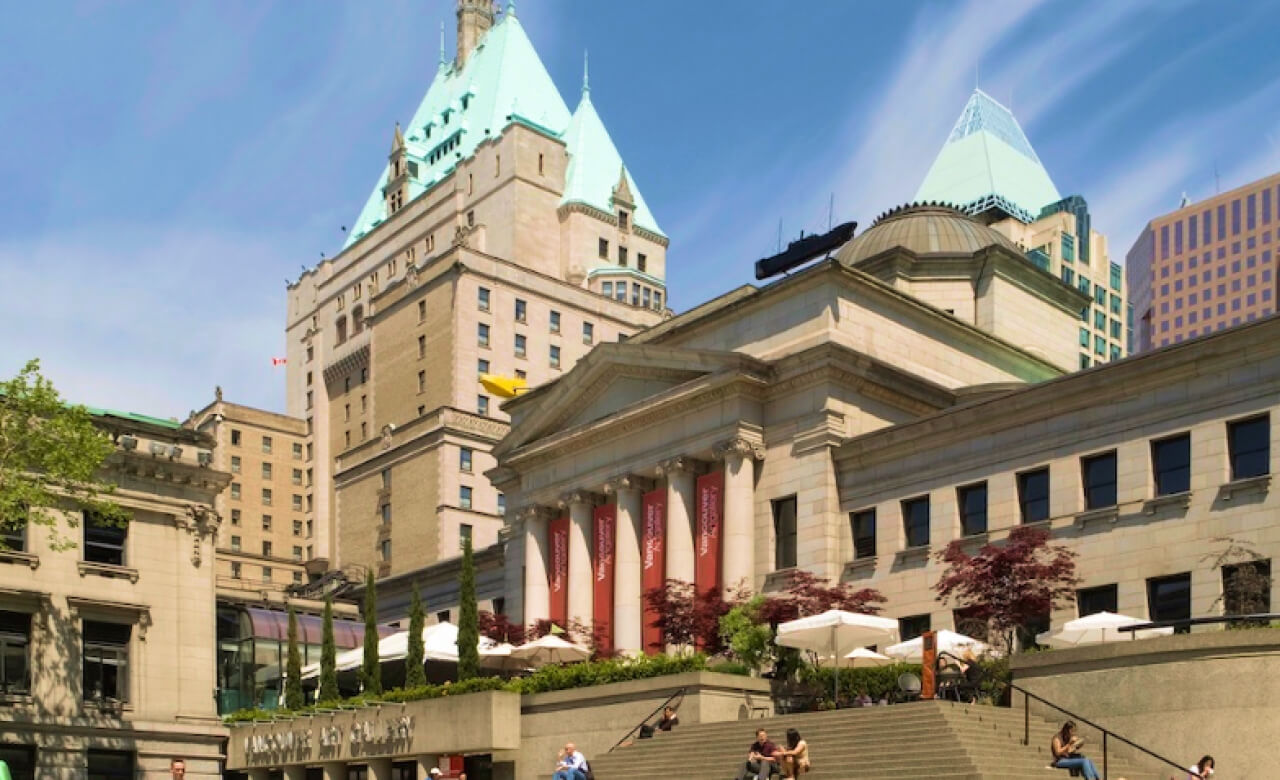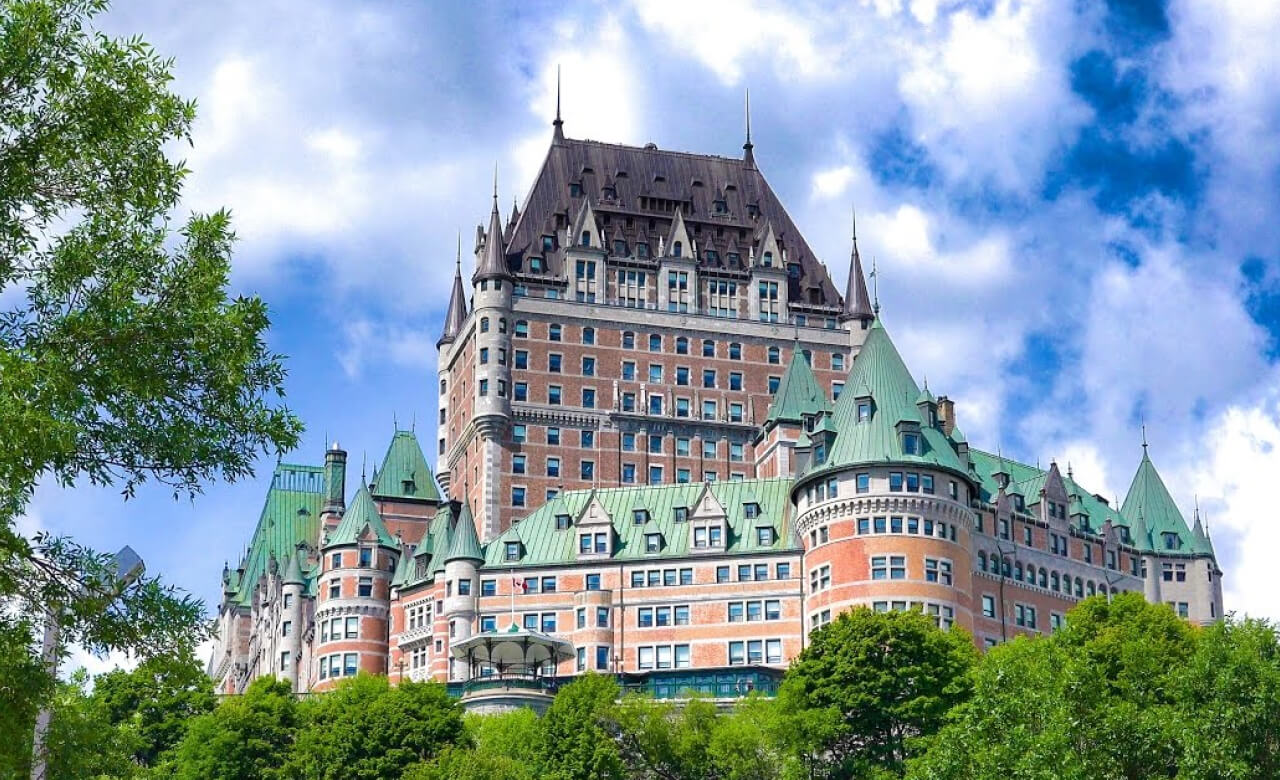Study in Canada
Canada stands out as a premier destination for international students, offering a unique blend of high-quality education and diverse cultural experiences. With over 800,000 international students enrolled annually, the country is home to more than 100 universities and colleges, many of which rank among the top in the world. Canadian institutions are known for their rigorous academic standards, innovative research opportunities, and comprehensive support services tailored for international students. Courses in Canada are a combination of various fields, including science, technology, arts, and business, ensuring that students can find courses that align with their career aspirations.
In addition to its academic offerings, Canada boasts a welcoming and inclusive environment that celebrates multiculturalism. Students can experience vibrant cities like Toronto, Vancouver, and Montreal, each rich in culture and community. The country also provides opportunities for work through programmes such as the Post-Graduation Work Permit (PGWP), allowing graduates to gain valuable work experience after completing their studies. With its stunning natural landscapes, safe living conditions, and high quality of life, Canada not only serves as an excellent place to study but also offers a fulfilling lifestyle for students from around the globe.
Key Highlights Of Studying In Canada
|
Highlight |
Details |
|
Popular Destinations |
Major cities include Toronto, Vancouver, and Montreal, with Ontario and British Columbia being top provinces for international students. |
|
Top Universities |
Includes University of Toronto (#21), McGill University (#30), and University of British Columbia (#34) in QS World Rankings 2024. |
|
Tuition Fees |
Average annual tuition ranges from CAD 10,000 to CAD 60,000, depending on the programme and university. |
|
International Student Population |
Over 1 million international students enrolled in Canadian institutions in 2023. |
|
Work Opportunities |
Students can work up to 20 hours per week during studies and full-time during breaks. |
|
Cultural Diversity |
Canada is known for its multicultural society, with over 250 ethnic origins and a welcoming environment for international students. |
Why Study In Canada?
Ever since Canada opened up its doors to students and residents alike, the study opportunities have grown tenfold, making it a leading destination in providing world-class education. Apart from the fact that Canada houses some of the top universities in the world, it’s the combination of different cultures that makes it a country the one to beat. These are some of the reasons why students should consider studying in Canada after 12th:
1. High-Quality Education
- Canadian universities and colleges are globally recognised for their academic excellence, with many ranking among the top institutions worldwide.
2. Affordable Tuition Fees
- Tuition costs in Canada are generally lower than those in other popular study destinations like the U.S. and the U.K., making it a cost-effective option for students.
3. Diverse Programme Offerings
- A wide range of programmes is available across various fields, allowing students to find courses that align with their career aspirations.
4. Multicultural Environment
- Canada is known for its inclusivity and diversity, providing a welcoming atmosphere for students from various backgrounds.
5. Excellent Work Opportunities
- Students can work up to 20 hours per week during studies and full-time during breaks, with post-graduation work permits available for up to three years.
6. Safe and Friendly Living Conditions
- Canada boasts a high standard of living, low crime rates, and a reputation for being one of the safest countries in the world.
7. Rich Cultural Experience
- Students can immerse themselves in Canada’s vibrant culture, enjoying various festivals, cuisines, and outdoor activities.
These factors make Canada an appealing choice for international students seeking a comprehensive and enriching educational experience.
Intakes In Canada
Study abroad in Canada offers three primary intakes for international students: Fall, Winter, and Summer.
Fall Intake
- Timing: September to December
- Popularity: This is the most sought-after intake, with the majority of programmes available. Most universities offer a wide range of courses during this period, making it ideal for students looking to start their studies.
- Application Deadline: Generally from December to March.
- Benefits: Students have ample time to acclimate to their new environment and access numerous scholarship opportunities.
Winter Intake
- Timing: January to April/May
- Availability: This intake is secondary and typically has fewer programmes available compared to the Fall intake.
- Application Deadline: Usually from September to November.
- Benefits: Smaller class sizes allow for more personalised interaction with faculty.
Summer Intake
- Timing: May to August
- Availability: Limited courses are offered, making this the least popular intake.
- Application Deadline: Generally from October to February.
- Benefits: Unique courses may be available, and smaller class sizes provide personalised attention.
These intakes provide flexibility for international students and cater to various academic needs throughout the year.
Available Courses To Study
One-year master's programs in Canada are increasingly popular among international students seeking a faster route to advanced education and career opportunities. These programs typically allow students to complete their degrees in just 12 months, making them an attractive option for those looking to enter the job market quickly or change their career paths. Canadian universities offer a diverse range of one-year master's degrees across various fields, including business administration, engineering, data analytics, and public health.
Finances
Cost of Education in Canada
The cost of studying in Canada varies based on the programme and institution. On average, international students can expect to pay between CAD 20,000 and CAD 30,000 per year for undergraduate programmes and CAD 30,000 to CAD 50,000 for graduate programmes. Additionally, living expenses typically range from CAD 12,000 to CAD 15,000 annually, depending on the city and lifestyle choices. Overall, students should budget around CAD 38,000 to CAD 45,000 per year to cover both tuition and living costs.
Cost of Living in Canada
The cost of living in Canada varies significantly depending on the city and lifestyle choices, making it essential for international students to budget accordingly. Understanding these costs is crucial for students planning their finances while studying in Canada.
|
Particulars |
Cost (Monthly) |
|
Off-Campus Accommodation |
CA$ 1,200 - 2,700 |
|
On-Campus Accommodation |
CA$ 600 - 1,200 |
|
Transportation |
CA$ 70 - 185 |
|
Food Cost |
CA$ 240 - 480 |
|
Utility Cost |
CA$ 100 - 200 |
|
Entertainment |
CA$ 60 |
|
Groceries |
CA$ 64 |
|
Clothes |
CA$ 133 |
City-Specific Costs
|
City |
Estimated Monthly Cost (CAD) |
|
Toronto |
3,551 |
|
Vancouver |
3,445 |
|
Montreal |
2,384 |
|
Calgary |
2,449 - 2,822 |
|
Ottawa |
2,449 - 2,822 |
Cost Of Studying In Canada
Interest rates as low as 8.9% *
Avg. on-campus living expense CAD24,264
250K+
Students Assisted
800Cr+
Loan Amount Disbursed
5000+
Loans Sanctioned
Admission Process
To study in the universities in Canada for Masters, international students must meet specific admission requirements, which can vary by institution. Here are the general eligibility criteria:
- Completed Application Form: Submit the official application form for the chosen programme.
- Academic Transcripts: Provide transcripts from high school for undergraduate programmes or a bachelor's degree for postgraduate courses, typically with a minimum GPA of 3.0 on a 4.0 scale (approximately 83-86%).
- English Language Proficiency: Most universities require proof of English proficiency through tests like IELTS (minimum score of 6.0 to 6.5) or equivalent tests such as TOEFL or PTE.
- Standardised Test Scores: For certain programmes, standardised test scores may be required, such as GMAT (minimum score of 500-600) for MBA programmes or GRE for other graduate courses.
- Letters of Recommendation: Typically, 1-2 academic and/or professional references are required to support the application.
- Statement of Purpose (SOP): A personal statement outlining your academic goals and reasons for choosing the programme.
- Resume/CV: An updated resume detailing educational background and work experience, if applicable.
- Proof of Financial Support: Documentation demonstrating sufficient funds to cover tuition and living expenses during the study period.
- Valid Passport and Study Permit: A valid passport and a Canada student visa are necessary for studying.
These requirements ensure that students are adequately prepared for their academic journey in Canada and can contribute positively to the university community.
How to Apply To University In Canada
Universities in the world follow the same general application process, and Canada is no different from this. You may however look into your specific universities application process, your programme may require a few extra documents. Apart from that, this is the universal application process:
1. Choose a Program and University
- Research and select a suitable programme that aligns with your academic and career goals. Check the universities offering your chosen programme.
2. Prepare Required Documents
- Gather necessary documents, including:
- Academic Transcripts: Official records from previous schools.
- English Language Proficiency: Test scores from IELTS, TOEFL, or equivalent.
- Letters of Recommendation: Usually from teachers or professionals.
- Personal Statement: An essay outlining your goals and reasons for choosing the programme.
- Resume/CV: Detailing your academic and professional experience.
- Portfolio: If applicable, for programmes in art or design.
3. Submit Your Application
- Complete the application form through the university’s official website or a centralised application system. Pay the non-refundable application fee and upload all required documents by the deadline.
4. Wait for Admission Decision
- After submission, wait for the university to review your application. Admission decisions are typically communicated in the spring or early summer.
5. Accept Offer and Apply for Study Permit
- If accepted, review and accept the admission offer by the specified deadline. Then, apply for a Canadian study permit to legally study in Canada.
6. Plan for Arrival
- Arrange housing and prepare for your move to Canada, ensuring you have all necessary documents ready for immigration.
By following these steps, you can navigate the application process smoothly and enhance your chances of securing admission to a Canadian university.
Visa Process and Requirements
To study in Canada, international students must navigate a well-defined process to obtain a study permit, which allows them to pursue their education in one of the world's most welcoming and diverse countries. Understanding the visa requirements is crucial for a successful application, as it involves providing various documents and demonstrating eligibility. Below are the key requirements to keep in mind when applying for a study permit in Canada:
- Study Permit: Required for international students.
- Acceptance Letter: Must have an acceptance letter from a Designated Learning Institution (DLI).
- Proof of Funds: Demonstrate sufficient funds to cover tuition and living expenses (approximately CAD 20,635 for a single student).
- Criminal Record Check: Provide a police certificate to verify a clean criminal record.
- Medical Examination: May be required to ensure good health.
- Intent to Leave: Demonstrate intent to leave Canada after completing studies.
- Language Proficiency: May need to provide scores from language tests like IELTS or TOEFL.
- Application Process:
- Submit documents online or via paper.
- Pay a visa application fee of CAD 150.
- Possibly undergo biometrics collection.
Student Accommodation Canada
Discover the finest and most affordable student accommodation near York University with UniAcco. With our guidance, you will find secure student housing options with ample amenities and facilities to keep you satisfied. Choose from a wide range of properties near York University including flats, student halls, studio apartments, private apartments, and many more. Student accommodation near York University comes with maximum comfort at affordable prices. The York University has something for everybody and therefore your time here will be comfortable and pleasant with the right accommodation.
With UniAcco serving 10,000+ students across the globe, become a part of our ecosystem and get the best guidance to flourish your study abroad dream near York University. Get the help of experts at UniAcco and choose the best student housing near York University that will make your study abroad journey worthwhile!

